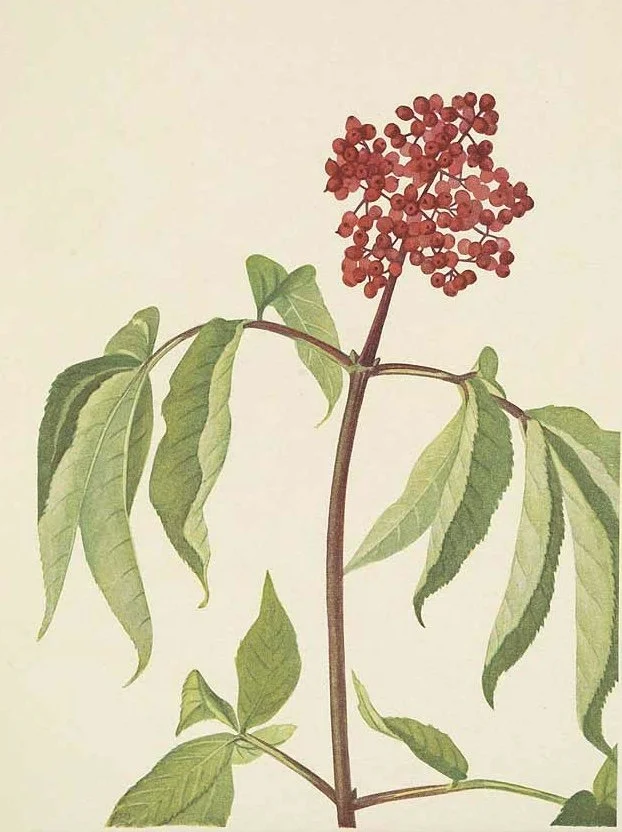Sakhalin Red Elderberry
Sakhalin Red Elderberry
SAKHALIN RED ELDERBERRY
Sambucus sachalinensis
Collected on the Russian island of Sakhalin in the Pacific. Big clusters of sweetly fragrant white flowers produce glossy bright red fruit. Shrubby and suitable for deciduous forest margins and hedgerows. Hardy to at least zone 5.
This species may or may not be the same or similar to Sambucus sieboldiana, which has long been used for food, medicine and wine in Japan. Precious little reliable information on either of these species is available in English so we are reluctant to recommend growing for purposes beyond curiosity. Some sources do list S. sieboldiana as S. racemosa ssp. sieboldiana, a subspecies of the inedible and potentially toxic European red elderberry, but we are not convinced. The whole genus of Sambucus is a taxonomical wreck, frankly, but nearly all species are very easy to maintain once established and are a valuable source of food and shelter for diverse wildlife. The wood of Sambucus species has traditionally been used for craft and ceremonial purposes.
These seeds require stratification to germinate. We find that Sambucus species germinate best outdoors in the spring, after several freeze and thaw cycles. Pot up the seeds in autumn or even well into winter and place in a sheltered location outdoors, or in an unheated barn or screen porch. Seeds will begin to germinate during the first warm days of spring. Alternatively, seeds may be potted and kept in the refrigerator for 6-8 weeks before being returned to cool room temperature in bright light. Germination using the latter method will be poor and erratic, but these seeds are tough and several attempts should be made to germinate stragglers. Do not at any point expose potted seeds to high temperatures.
Seedlings may be grown in big deep pots of rich potting soil through their first year. Overwinter potted plants in a fairly cold but sheltered location. Transplant well-rooted young plants in early spring or autumn. Prefers to grow in partly shaded and moist but well-drained loamy soils. Mulch generously. Requires very little attention once established.
Packet contains at least 20 seeds.
